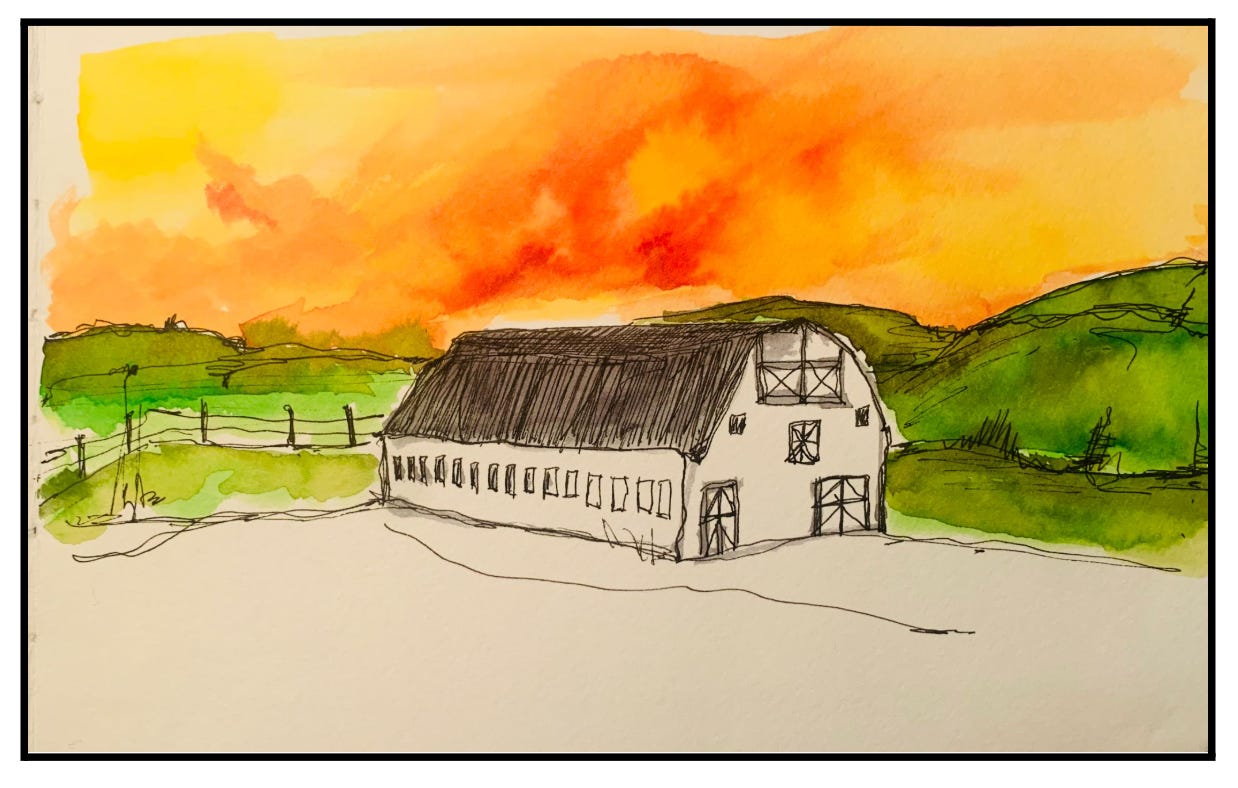I’m very happy to be home for a bit, and elated to be doing some Latin again. This week I’m working on Catullus, preparing his “Carmina 22” for class tomorrow. The only problem is that I’ve been a little distracted by watching Yellowstone for the first time. It’s hard to wrench myself away from the Dutton Ranch . . . so my translation is suffering. Here’s a first go at it:
That Suffenus of yours, Varus, whom you know so well,
Is a charming man, sharp-tongued and urbane,
And the very same who produces by far the most verses.
I think ten thousand or more lines have been written down by him,
And not in the way it usually happens, etched into a palimpsest:
Regal papyrus, fresh books, new canisters, ruby straps, goatskin parchment,
Ruled lead and all made smooth with pumice.
When you read his verses, that sharp and urbane
Suffenus seems at second glance
One with a goat-milker or a ditch-digger:
By that much does he shift and change.
Why do we think this? He who just now seemed a wit
Or more shrewd about some affair,
The same man is cruder than the crude countryside,
The moment he touches poems, and nor is the same man
Ever equally happy as when he is writing poems:
He so rejoices in himself and so marvels at himself.
It would be a wonder if we all did not make the same mistake,
Nor is there any man whom you may not see Suffenus
In some part. To each man is given his own error;
But we do not see the knapsack on our back.
Ouch! Catullus runs roughshod over the charming city-dweller Suffenus. His poetry, though inscribed on the finest material, is likened to the unskilled labor of the peasantry. A waste of good goatskin parchment, I’m afraid.
Well, this poem doesn’t exactly lend itself to English translation, as you can tell from my flat literal translation. I tried taking liberties to improve the sound but the problem remained: the poetry of the Neoteric poets (Catullus preeminent among them) is substantively girded by its metrical precision, diction, syntax. These Neoterics were the modernists, the Eliots and Pounds and Audens, of the late Roman Republic. Rhythm and meter, they thought, weren’t just embellishments but the prime constituents of poetic meaning. And I’m not the metricist I have to be to recapture that! For instance, nostī in line one is the syncopated (shortened) form of novistī. Catullus is catering to his choliambic meter while at the same time suggesting that Varus knows Suffenus, but only a foreshortened version of him—he doesn’t know him as well as he thinks he does. The poem seems to ask: can one know a man deeply if the man isn’t very deep himself?
But back to Yellowstone for a minute. I know I’m about six years behind the curve, but I’m deeply obsessed. I now see the world through the ochre haze of the opening credits; I’m suddenly very homesick for a Montana I’ve never lived in; my little golden dachshund is starting to look like a miniature horse. So if we’re going to put everything in terms of the Ranch, Catullus is the Beth Dutton of the first century BC. He’s raunchy, merciless, searingly sardonic—but deep down, he’s a hopeless romantic. And he’s got a great rivalry with Cicero, the foremost lawyer of the time. Sound like Beth’s animosity toward her lawyer brother Jamie, anybody?
Sadly I’m not sure an analysis of Catullus “through the lens of” Taylor Sheridan’s soapy drama is entirely germane. Although you never know in the academy these days—I’m sure I could get away with a thesis like “‘The Knapsack on Our Back’: Neo-Western Neotericism in Catullus 22 and Yellowstone.”
That’s quite good, actually. I might say something about the critique of urbanity both “texts” offer. Catullus uses urbanus twice to describe Suffenus, and the second time it rings even more scorchingly pejorative than the first. His sophistication makes his poetry seem all the more crude. There’s no meaner epithet on Yellowstone than “transplant”—what the ranchers call the pour-over coffee-drinking San Franciscans buying up Montana real estate. I could go on . . .
“To each man is given his own error; but we do not see the knapsack on our back.” It’s classic Catullus to close a light-hearted satire with an unsettlingly accurate insight. Each of us has this embarrassing blindness to our private burden. You realize you’ve been laughing at Suffenus when you should’ve been laughing at yourself.
I’ll stand by my comparison to Beth, here. She stops everybody on the show from taking themselves too seriously. She’s a firecracker, and sometimes she goes too far. But so does Catullus! (See the penultimate stanza of “Carmina 11.”) If Yellowstone had a tagline or a motto, I think this line from Catullus would be a good candidate. Each character is saddled with error. Some, like Beth, just see it better than others.




